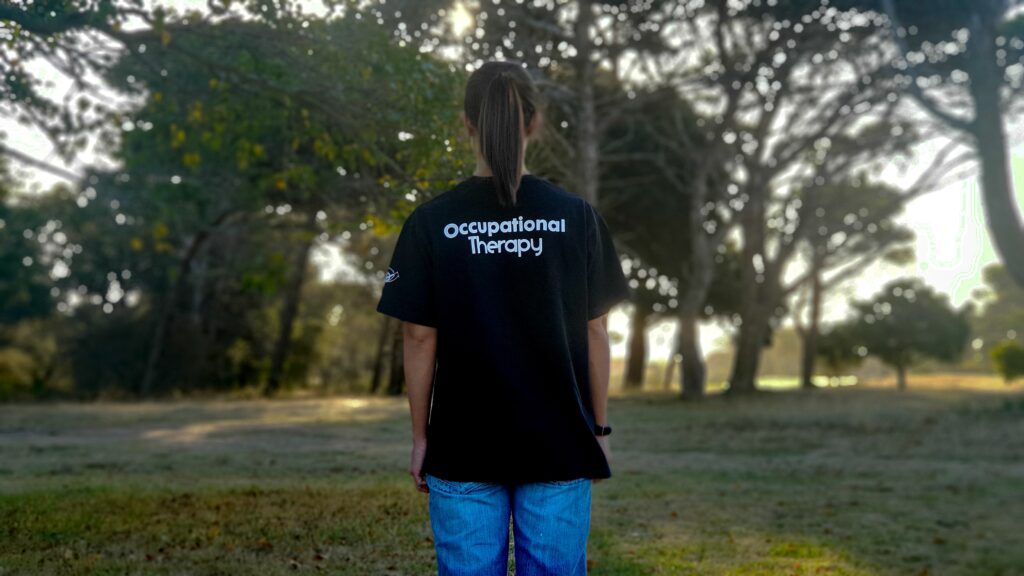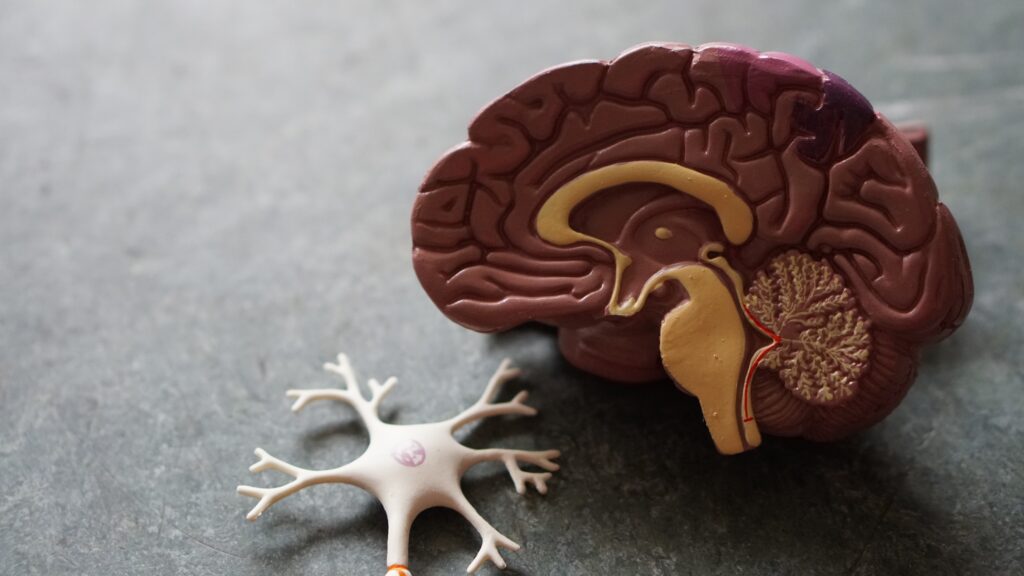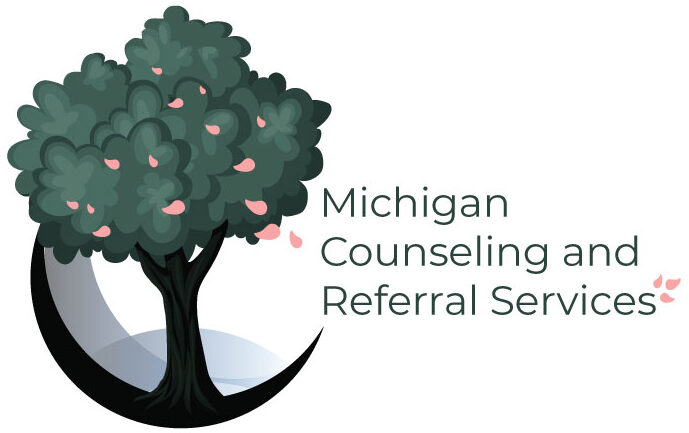Table Of Contents
What Can I Do Instead Of ABA?
Applied behavior analysis (ABA) is a type of behavioral therapy that was developed to “treat” Autistic kiddos. It has been the standard of care for treatment of Autism Spectrum Disorder for years.
With the concept of Neurodiversity coming to the limelight recently, Autistic folx have began making their opinions heard on how they are treated by our mental health system. They have particularly spoken out against ABA therapy and the dangers it imposes on Autistic kiddos.
Instead of ABA, here are some recommendations to keep in mind from neurodivergent folx and practitioners:
- Educate yourself on neurodiversity
- Ask your neurodivergent loved one what they need from you
- Find a neurodiversity affirming mental health therapist
- Neurodiversity affirming occupational therapy
- Neurodiversity affirming speech therapy
1. Educate Yourself On Neurodiversity
The most important factor of locating alternate treatment options to ABA is to understand the term neurodiversity. We recommend avoiding ABA as neurodiversity affirming therapists. This is because of the basic tenant of ABA treatment viewing what we call neurodiversity “disordered”.

ABA’s focus is to use reinforcement to encourage kids to mask their neurodivergent behaviors. This could be sounds they may make, repetitive physical movements, or both. Where ABA views these behaviors as “disordered”, we view them as simple differences. In turn, treating these differences as “disordered” is actually incredibly harmful.
Imagine for a Second
Imagine having a verbal tick that you physically cannot control. It doesn’t get in anybody’s way, it’s subtle, and may potentially cause others to have minor annoyance in some circumstances.
Now imagine being told over and over again that this is a problem and it will hinder your abilities to be successful in life. People will always view you as “weird”, OCD, Autistic, or some other stigmatizing label because of how your mind and body are wired.
ABA’s “Solution”
ABA attempts to offer a solution for this. At its core, ABA encourages your neurodivergent child to just stop being the way they are around people who may judge them by masking these behaviors. It teaches them that their psychological differences are wrong and that they should be changed.
This is what it is like for neurodivergent kiddos who are trying to exist in a neurotypical world. We struggle to behave and succeed in the same exact ways neurotypical kids can.
This doesn’t mean we can’t succeed in a neurotypical world. As a matter of fact, we tend to be a lot better in certain neurotypical situations than neurotypical people are (cue hyper-fixation for the win).
It simply means we need to place the change where it will actually be effective. Instead of trying to “fix” your child’s neurodivergence, you want to teach them to be self-accepting and learn about their strengths so they can use them to succeed.

Advocacy for Neurodiversity Instead of ABA
We also need to advocate in public spaces to be more accepting and sensitive to neurodivergent thinking. This can be in schools, religious communities, work places, universities, governmental systems, and pretty much anywhere else you can think of.
I’m NOT saying if you are neurodivergent that you or your child do not need therapy. Chances are, there’s something you may need to seek treatment for. This is normal. Instead of looking to ABA, look for a therapist who specializes in using a strengths-based approach to helping you heal.
Any therapy can be adapted to include neurodivergence so that you and your child can be successful. Depression, anxiety, PTSD, and other psychiatric illnesses can still pop up. Focus on that instead of the neurodivergence. Trust me, the results will be much better for you or your child.

2. Ask Your Neurodivergent Loved One What They Need From You
Instead of ABA, ask your neurodivergent loved one what they need from you. ABA and other “therapies” for neurodivergence historically have not been effective due to the lack of neurodivergent voices present in the development of them. This is due to the masking nature of behavioral type therapies for neurodivergence, like I mentioned above.
Simply asking your ND loved one what they need from you is a great first step to helping support them without turning to therapies like ABA. Remember, we want to empower your neurodivergent loved one. We do NOT want them to feel like they have a disorder. This has a self-stigmatizing effect as well as an outside stigmatizing effect.
Put Your Neurodivergent Need for Support Before Your Need for Convenience
Asking your neurodivergent loved one what they need for you vs assuming is also a great way to show them that you support them. It is most important that neurodivergent folx feel supported, just like anybody else.
In my mind, everything in life is all peripheral to your relationships with people. Learn to be your neurodivergent loved one’s person and I promise you you will not be disappointed. The rest will fall into place.
Undoing Your Biases
Check out this article about a NT parent with her ND child discussing this idea. She talks about being a physician and how it affected her approach to her child’s neurodivergence.
Throughout the article, she toggles between being a parent and a physician trying to help her child with their struggles. It’s fascinating because I feel that this is a common struggle of parents for neurodivergent kiddos. We want what’s best for them.
ABA on paper looks very appealing because it’s simple for the average person to understand, appears to have research behind it (this is nuanced, I’ll return to it later), and it is supported by insurance and school systems–meaning it’s also accessible. What else could we ask for?
What’s Wrong with ABA
Well, unfortunately it is not that simple. The basic tenants of ABA ignore the unique structure of Autistic folx’s brains. It serves as an imposition to change their behavior rather than actually help Autistic folx thrive using their own strengths.
So it will be more beneficial for you to ask your neurodivergent loved one what they need from you. We all know what we need, and it is so important to be heard by others.
This idea is the same for all ages. Everybody knows best what environments they will succeed in. ABA forces masking to neurotypical norms instead of fostering an accepting and truly diverse environment inclusive for everyone.

3. Find A Neurodiversity Affirming Therapist
So what should you do if ABA is not the answer for your loved one? Finding a neurodivergent affirming psychotherapist will have great knowledge of how best to support you or your child outside of ABA.
For more information on neurodiversity affirming therapy, check out this article. It goes over the basic tenants of a neurodiversity affirming therapist of any kind: mental health, occupational therapy, or anything else you can think of!
Remember, neurodiversity affirming therapy for your loved one will not focus on their neurodiversity as a disorder, but a contextual factor to their struggles. Everybody on the planet has mental health struggles sometimes. We neurodivergent folx are not the exception.

What NOT To Do
What we do NOT want to do is to try to “fix” our neurodiversity or label it as the problem. Often times, the problem is not being accepted because of our differences. Or maybe there are other factors contributing to our mental health struggles.
Either Way, a neurodiversity affirming therapist is a rare resource that can benefit you and your loved one. So instead of turning to ABA, you can find neurodivergent affirming therapists in the neurodivergent therapist directory. This directory has tons of therapists around the US listed by state that are neurodivergent and neurodivergent affirming.
You can also ask providers near you if they are neurodivergent affirming. Be sure to ask the following questions:
- What experience in neurodiversity do you have?
- Do you identify as neurodivergent?
- What is your treatment philosophy for neurodivergent clients?
- How do you adapt therapy for neurodiversity?
There are a multitude of other questions you may have that I haven’t thought of. Ask those, too! Remember, you are interviewing someone to potentially manage your mental health. This is a decision that should not be taken lightly. You deserve the best!

4. Neurodiversity Affirming Occupational Therapy
Like Neurodiversity, occupational therapy is a treatment that has been gaining some major traction lately. Its primary focus is teaching and promoting vocational skills as well as activities of daily living through a strengths-based lens. Anything meaningful to you that you can think of, an occupational therapist will be able to help you achieve those skills!
True Strengths Based Treatment
Now I’m not an occupational therapist, nor have I been in to see one. So be sure to do some of your own research in addition to what I tell you here in this article. I’ll do my best to be as all-encompassing as possible.
This type of treatment is a more empowering focus on skills building for neurodivergent folx, in particular (no, not “social skills”). OT is much more appropriate for neurodivergent folx because it is a therapy designed to meet the client where they are at. It does not impose anything on people who participate in it.
ABA’s basic tenant is behavior correction and change according to a constructed idea of what is “normal”. It imposes the idea of “normal” on children who are viewed as “not normal”. Then, it tries to teach them how to mask their differences to appear “normal”.
OT works a bit different than this. It focuses on what is necessary for a neurodivergent person to function healthily in their life and gives them the skills to do so while embracing their neurodivergence.
Instead of working against your neurodivergence, OT promotes you working with it. This offers a much more strengths-based and affirming approach to therapy than ABA’s imposition of masking.

Education as a Factor
Another component to occupational therapy being better than ABA is the level of education required. Having previously been in ABA, I know the level of education for the therapists actually working with kiddos is not up to par with OTs.
Practitioners in ABA are called board certified behavioral analysts (BCBA) which require a master’s level education, which is the same as OTs. The problem here is that rarely do BCBAs actually administer the therapy that they prescribe.
It is standard practice in ABA for BCBAs to write a plan following a diagnosis session from a psychologist, then have somebody known as a behavior tech, behavior therapists, or some other title to actually administer the therapy.
Believe me, this leave a LOT of room for errors to occur in treatment.
A Therapeutic Thought Experiment
Imagine you are seeing me for therapy. You come in, meet me, and decide you like me and want to work with me. After about 2-3 sessions of getting to know me we discuss your diagnosis and treatment plan.
Then I tell you that you will be working with an undergrad in business administration whom I’ve never met ongoing on that plan and you will likely only see me periodically throughout that treatment period for reassessment.
I’d assure you that I’ve written a nice plan for how they should talk to you and what they should tell you until you’re cured. You’re probably going to take off and find somebody who actually wants to have eyes on you or your child more than 4 times per year.
ABA and OT Similarities and Differences
OT does have something similar to an ABA tech called an occupational therapy assistant. These folx are much more qualified to carry out their therapeutic interventions vs an ABA tech.
Specific programs for training are required to be an OTA whereas an ABA tech can literally be anybody who is at least in undergrad. This has been mine and others’ experiences.
So it is more beneficial for you or your neurodivergent loved one to participate in OT if you are struggling with important life functions. OT is a highly integrative therapy used in conjunction with psychotherapy and medicine for best results. The best part it, like psychotherapy, it focuses on using your strengths!
Be sure to look up occupational therapists near you to learn more!
5. Neurodiversity Affirming Speech Therapy
In a similar vein as OT, speech therapy is another great therapy to help neurodivergent folx. Speech therapy is a strengths-based, skills-building approach to helping neurodivergent folx that struggle with certain aspects of communication.
The focus on neurodivergent speech therapy is to work on helping neurodivergent folx communicate in ways that they are best suited for.

Like OT, it is focused on meeting you or your neurodivergent child where you are at.
Accessibility of Speech Therapy
Speech therapy is unique because it is much more present in schools, in particular. This means that speech-language pathologists are highly accessible to children at a very early age. Isn’t that fantastic?
Speech-language pathologists are phenomenal therapists who specialize in helping children and adults increase and better use their language skills in everyday life. Language is such an important component of success for neurodivergent folx since expression can be difficult for us, especially linguistic expression.
ABA’s Speech Dimension
ABA does have a speech dimension that it treats. It addresses speech using positive reinforcement, just like it addresses everything. For example, the therapist may say “say x”. If the child says “x”, they get a positive reward. If not, the therapist will continue to prompt the child to say “x” until they finally repeat it.
Seems about right, doesn’t it? Well first off, ABA therapists are not trained to help with pronunciation or specific phonological theory like speech therapists are. All they are doing is teaching “do as I say and you will get rewarded”. This is not exactly the message we should be teaching ANY child (contrary to popular opinion).
Speech-Language Pathologists’ Training
Speech-language pathologists have extensive training in the biology of our speech production system as well as phonology (the study of speech sound). They are trained to help your child not only learn communication, but to navigate their own unique communication style in their everyday life.
Mostly, speech-language pathologists work in schools, making them great resources to support your neurodivergent child. But speech language pathology is not only for children. If you struggle with communication in young adulthood, adulthood, or in elderly age you are also able to attend speech therapy.
So head to a speech specialist for your communication needs! Don’t settle for what insurance companies or ableist school systems try to push on you in ABA therapy as a “quick fix” to your child’s divergences.

Conclusion
This whole article may seem like it’s bashing the practices of ABA. I recognize it can potentially paint even practitioners in a bad light that practice this therapy. There is no doubt in my mind that people become BCBAs or ABA techs out of love for a seriously underserved population.
Assuming that these professionals intend to harm their clients is counter-productive to what we are trying to achieve as therapists. Just like anything, knowledge changes.
At one time, ABA may have been the only treatment around to support neurodivergent children. We have learned now that there is a lot more nuance to mental health treatment in recent times.
So I encourage you to consider different alternatives to ABA. These are great ways to support your neurodivergent loved one without turning to ABA. Schools, doctors, and even some therapists may tell you to look into ABA services for your neurodivergent child or family member.
This process is overwhelming, so I want you to know that you have options for yourself or your child. There is still a lot of work to be done in our field. Starting where you or your neurodivergent loved one are is the most important step. Unfortunately, ABA seems to skip over this as well as other important factors of treatment.
Contact Me Directly!
All inquiries are responded to within 1-3 business days from inquiry. Feel free to use my contact information tomorrow to leave a message!
Hours: Monday-Thursday 12-7pm
Phone: (269) 350-3470
Email: info@michigancrs.com
Location: 1451 East Lansing Dr., Suite 219
East Lansing, MI 48823

Fantastic article – very comprehensive!
Thanks so much, Ashley! I have a backlog of your stuff I need to catch up on, too!!